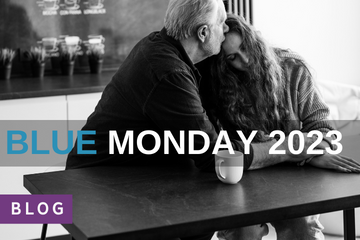
Friends and family urged to look for signs of abuse and neglect of older relatives this Blue Monday as millions at risk this winter
17 January 2022
Hourglass, the UK’s only charity focused on tackling the abuse and neglect of older people, is urging friends and family to look out for older relatives and be aware of subtle signs of abuse and neglect at a time of year when they are more isolated and at risk.
An estimated half a million older people are harmed, abused, and neglected every day in their own homes by people they thought they could trust[1]. With ongoing restrictions, colder weather, and the increased isolation it brings, the charity is warning that many older people could be at risk as they feel trapped in their homes and more reliant on others.
Hourglass runs the only UK helpline for older people at risk or experiencing abuse and neglect, and its team has pulled together top four tips to help people spot the signs:
- Inability to explain finances
Abuse can be hidden by perceived confusion. An older persons uncertainty or inability to explain what is happening to their finances could be economic abuse. This type of abuse can come in the form of stealing, having control over someone’s money, fraud, or embezzlement. In 2020, at least £13 million was reported as stolen, defrauded, or coerced from older victims to Hourglass[2].
- Anxious, agitated or withdrawn behaviour
Emotional, psychological, or mental abuse can include ignoring, bullying, or humiliating someone as well as depriving someone of their right to make decisions, choose when to eat, when to get up and who they spend time with. It is often intended to undermine someone’s self-worth and can leave a victim feeling anxious and withdrawn. Look out for a change in behaviour in older people you know.
- Under or overuse of medication
Injury or mistreatment is a telling sign of physical abuse and can include hitting, pinching, pushing, inappropriate use of restraints, force feeding or the rough handling of an older person. Over or under-medicating is a form of physical abuse without obvious signs of injury. To spot the signs look out for untouched or already empty medication packets.
- Difficulty sitting/walking
Sexual violence is the form of abuse least likely to be talked about in relation to older people. It includes forcing someone to take part in sexual activity without their consent, including touching, sexual assault, sexual harassment, and the use of sexual language. A potential sign of sexual abuse could be discomfort in the genital area which leads to difficulty sitting down or walking around.
----
Richard Robinson, CEO of Hourglass, is urging people to be more aware of abuse towards older people and to learn how to spot the signs to protect them:
“The abuse suffered by older people is a truly hidden issue, and it has been made worse by the pandemic. So much goes on behind closed doors, with friends and relatives none the wiser. I think the public would be appalled if they knew the extent of the problem.
“Abuse can occur anywhere, including someone’s own home, a carer’s home, a day care setting, a care home, or a hospital. We want people to be more vigilant and open their eyes to spot the signs, especially during the most depressing time of the year when emotions and moods are low.”
The charity notes that abuse can be carried out by anyone, but often the victim knows their abuser and is most often an adult son or daughter.
Hourglass is urging anyone worried an older person is at risk or being abused to call its helpline (0808 808 8141) to get advice and support on how to help. The charity has also launched a chatbot so concerned people can receive virtual help and access a knowledge bank containing useful and accessible information related to the abuse of older people.
Geoffery’s mother was financially abused by a member of their family. When Geoffery’s father died his mother needed somewhere to live. A family member offered for her to move in:
“She paid all the bills, she was very kind and generous to them and for a long time was very happy. It wasn’t until my mother died that I discovered the abuse she had suffered. They had been stealing her pension and fleeced her of her finances. The worst thing to me is that as she was lying dying in the next room on her death bed, they were on the computer transferring money across from my mother’s account. It’s hard to think that someone would do that.”
[1] Hourglass, Spotting the Signs of Harm, Abuse and Neglect (2020 – 2021
[2] Hourglass, Improving Protections Against Economic Abuse: Policy, Practice, and the Law (2021)
 Shop Now
Shop Now